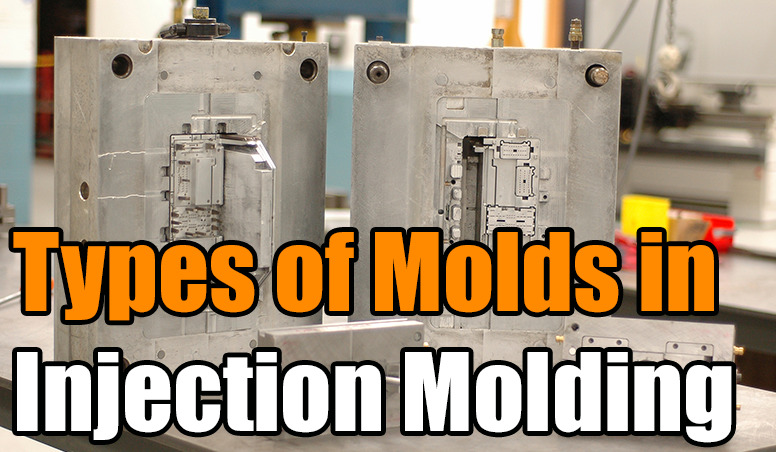The Future of Production: Adopting Personalized Injected Forming
The landscape of manufacturing is perpetually changing, and one of the most disruptive methods shaping this evolution is tailored plastic injection molding. As fields strive for increased effectiveness, results, and creativity, this method stands out for its remarkable ability to produce premium parts designed to specific needs. Businesses that utilize custom injection molding are not only able to enhance their product lines but also gain a distinct edge in the quickly changing industry.

Custom injection molding allows for the development of detailed designs and complex shapes that would be hard or even not achievable to create with other manufacturing methods. This flexibility is a revolution for businesses looking to minimize waste, decrease costs, and ensure precision in their products. By leveraging the strengths of custom injection molding, manufacturers can satisfy client demands with increased speed and accuracy, leading them into a new era where tailoring and efficiency coexist in balance.
Benefits of Personalized Injection Molding
Custom injection molding offers a substantial advantage in terms of designing flexibility. Manufacturers can create elaborate shapes and complex geometries that would be challenging to realize with traditional manufacturing methods. This flexibility allows businesses to develop tailored products that meet specific specifications and customer needs, ultimately enhancing product functionality and visual appeal.
Additionally major benefit is the efficiency gained in the production process. Custom injection molding can generate large volumes of parts quickly and consistently, which helps cut labor costs and production time. With state-of-the-art technology and robotics, companies can refine their workflows, leading to reduced lead times and the ability to respond rapidly to market demands. This efficiency is particularly advantageous for businesses seeking to maintain competitiveness in fast-paced industries.
Cost-effectiveness is a critical factor in manufacturing, and personalized injection molding provides considerable savings over time. While the beginning setup costs may be higher due to tooling and design, the long-term benefits include reduced per-unit costs as production expands. Additionally, the material waste is minimized in this system, further contributing to cost savings. Manufacturers can optimize their budgets while still delivering premium, customized products to market.
Technological Improvements in Molding Injection
Bespoke injection molding has greatly evolved in the past years, boosted by innovations in technology that improve production efficiency and product quality. One major development is the integration of automation and robotics in the manufacturing process. Automated systems simplify operations, reduce human error, and can work continuously without breaks, leading to increased output rates. This automation enables greater precision, which is crucial in producing complex parts that meet exact specifications.
Another critical advancement is the emergence of innovative materials that broaden the capabilities of custom injection molding. Developments in polymer technology allow manufacturers to use materials that are lighter-weight, more durable, and more robust to heat and chemicals. This versatility ensures that products both meet performance requirements but also adhere to environmental regulations. Furthermore, the ability to use biodegradable materials aligns with the growing emphasis on sustainability in manufacturing.
In conclusion, the utilization of digital tools such as computer-aided design (CAD) and simulation software plays a crucial role in enhancing the custom injection molding process. These tools allow designers to visualize and test their ideas in a virtual environment, spotting potential issues before production begins. This proactive approach reduces waste and reduces the time needed for prototyping, ultimately leading to faster delivery and greater customer satisfaction. These technological advancements collectively establish custom injection molding as a crucial player in the future of manufacturing.
Sustainability and Environmental Considerations
Tailored injection molding offers significant advantages in terms of eco-friendliness, aligning production processes with eco-conscious practices. This manufacturing method enables precise control over material usage, reducing waste produced during production. By using advanced software and machinery, manufacturers can enhance designs and processes to ensure that only the essential amount of material is used, thus reducing excess waste that often occurs in standard manufacturing methods.
Moreover, custom injection molding facilitates the use of recycled materials, enabling manufacturers to incorporate sustainable plastics into their production lines. This not just helps in decreasing the reliance on virgin materials but also promotes a circular economy where materials are recycled. Manufacturers embracing custom injection molding practices can provide eco-friendly solutions to their clients, fulfilling the growing demand for sustainable products and enhancing their market competitiveness.
Finally, custom injection molding can substantially lower energy consumption compared to other manufacturing techniques. The performance of the process enables faster production times, which translates to lower energy use per unit produced. As industries increasingly seek to minimize their carbon footprint, the adoption of energy-efficient practices in custom injection molding establishes it as a leading option for companies committed to environmental stewardship and sustainable manufacturing.